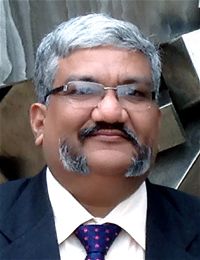Welcome

Welcome to the Department of Mechanical Engineering at IIT Kanpur. We started our journey in the year of 1960. Over the last six decades, we have grown our expertise and competence in the core Mechanical Engineering curriculum and research....
- Read More
-Prof. Ashish Dutta
Head, Department of Mechanical Engineering
Syllabus:REV, Mass, momentum and energy transport, Darcy and Non-Darcy equations, equilibrium and nonequilibrium conditions, species transport, radioactive decay, equivalent thermal conductivity, viscosity, dispersion, Flow over a flat plate, flow past a cylinder, boundary-layers, reservoir problems,...
Credits:9
Syllabus:Numbers within parentheses give number of lectures for...
Credits:9
Syllabus: Additive Manufacturing ( AM) is a process of joining materials to make objects from 3D model data, usual y layer up on layer, as opposed to subtractive manufacturing methodologies, such as traditional machining. The basic principle of AM is that a model, initially generated using a three-dimensional Computer Aided Design (3D CAD) system, can be fabricated directly. AM technologies have significantly evolved over the last decade. Because of their potential to extensively transform the nature of manufacturing processes, e.g ., by enabling "Freedom of Design" several industries have been attracted by these technologies. Using AM, manufacturing of highly complex parts can be an economically viable alternative to convention al manufacturing technologies.
Credits:
Syllabus:Introduction to stress and strain and need for experimental stress analysis. Localized measurement of deformation: Electrical resistance strain gages including bridge configurations and strain amplifiers used, optical displacement and strain sensors, LVDT and capacitance based sensors...
Credits:9
Syllabus: Review of fundamentals of thermal transport in manufacturing: Introduction to the course, Steady and transient heat conduction, Convection and Radiation, Natural convection. Finite Volume based modelling of heat transfer in manufacturing and numerical implementation, Phase change - Enthalpy based algorithm for Melting/solidification, Two-phase mushy zone flows, Liquid- vapour phase change involved in manufacturing, Illustration using code. Case studies on modelling of thermal transport in manufacturing processes: Solidification processing – Casting, Marangoni convection driven flow, Arc, Laser/Electron beam welding. Heat assisted manufacturing process –...
Credits:9
Highlights
- List of candidates from CFTI selected for provisional admission for PhD program in Mechanical Engineering for the session 2025-26-I.New
- Department of Mechanical Engineering, IIT Kanpur Presents 2nd Mechanical Sciences Young Investigators Meet MSYIM 2025 17-19 March 2025. Visit the website for more details: MSYIM 2025
- Guidelines for the Application of Institute Post Doctoral Fellows
- Applications invited for direct PhD students for the semester 2025-26-I. Last date of application February 20, 2025
- List of Selected candidates: Winter PG Admission 2024
- Candidates Shortlisted for Interview: Winter Admission PhD Programme 2024
- Dates for PhD winter admission 2024 written exam and interviews: November 27-28, 2024
- Reporting date of all new PG students: Jul 18 - 19, 2024
- Departmental Orientation of new PG Students: Jul 20, 2024, 2:30 PM onward, Venue: L16
- PhD admission (Round 2): Application form available here. Last date of application: 4th July 2024. Online written test: 7th July, 2024, Online/Offline Interviews: 10th July, 2024
- M.Tech. Admission (through COAP): Cutoff score, Vacancy and fee paid data
- Selected candidates for provisional admission in PhD programme
- Selected and WL candidates for MS(R) admission (Institute-sponsored category) Round 1
- Rolling advertisement for faculty recruitment





























